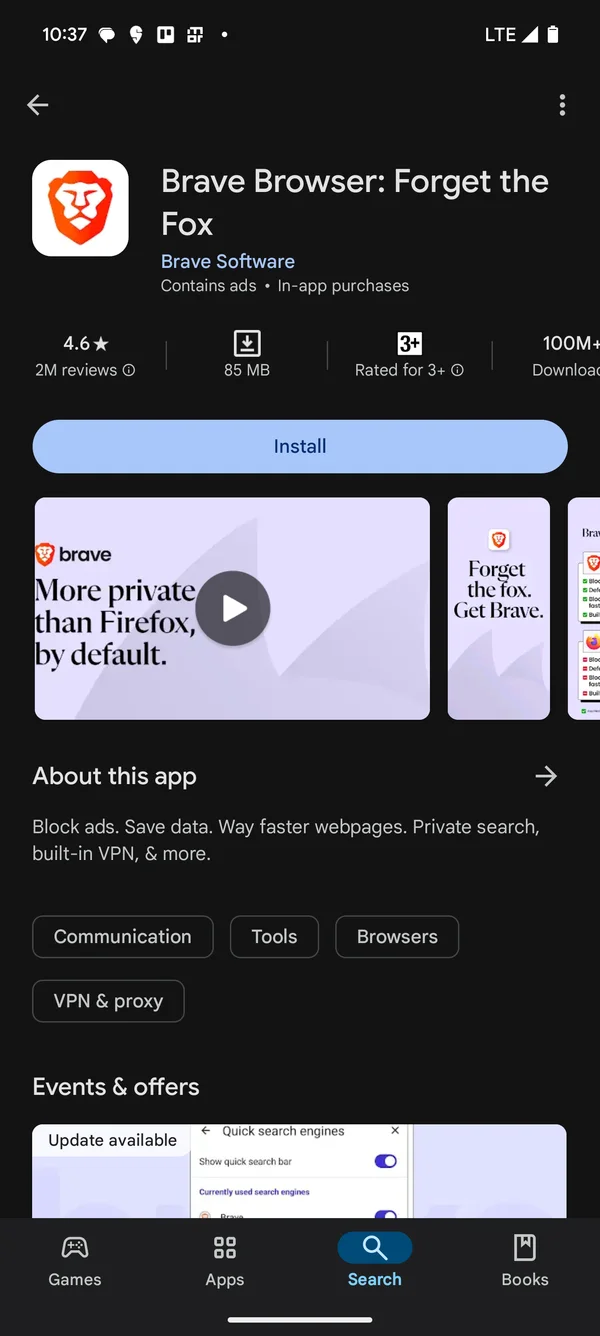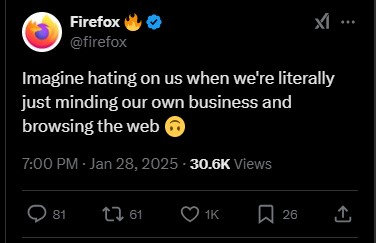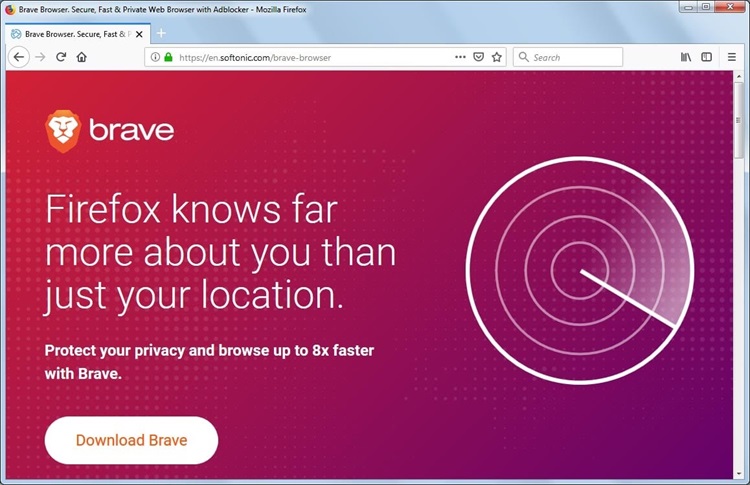Imagine scrolling through the Google Play Store, searching for Firefox browser and suddenly, another app is trying to convince you to forget the fox. That’s exactly what happened yesterday when Brave Browser briefly rebranded itself as “Brave Browser – Forget the Fox” in what appeared to be a direct attempt to lure Firefox users over to its platform.
This bold (and somewhat cheeky) move didn’t go unnoticed. While some users like my boss could see the name change in the Play Store, others — including my colleague and I — couldn’t find a trace of it. However, a screenshot popped up on Reddit, sparking a heated discussion about whether Brave had gone too far in its marketing tactics.

And then came Firefox’s response.
In a cryptic yet savage post on X, Firefox simply wrote: “Imagine hating on us when we’re literally just minding our own business and browsing the web 🙃.”

That single X post racked up over 30,000 views in hours alongside a bunch of reposts and replies, with users rallying behind the long-standing open-source browser.
By the next morning, Brave’s tagline had mysteriously reverted to its usual name — no more “Forget the Fox.” Whether Google intervened or Brave decided to quietly back down after Firefox’s subtle clapback remains a mystery. However, it’s also possible that this was simply an A/B test by Brave, leveraging Google’s custom store listing feature. Google allows developers to create up to 50 custom store listings, which can be tailored to different market segments or regions to optimize app downloads. This means some users may have seen the new tagline while others didn’t, making it part of a targeted marketing experiment rather than a broad rebranding attempt.
A not-so-subtle strategy?
Brave has always positioned itself as the privacy-first, ad-blocking alternative to mainstream browsers, and it’s no secret that Firefox shares a similar ethos. However, directly calling out a competitor in the Play Store name was a surprising (and arguably risky) move. For users who spotted it, the change made Brave appear aggressive in its bid to convert Firefox users. Some saw it as a clever marketing stunt, while others thought it reeked of desperation. Redditors were quick to weigh in, with one user noting, “Even as a Brave user, I have to say that that isn’t a good look on them.” But hey, this isn’t the first time Brave is involved in conroversy. For instance, in 2019, Brave displayed a message suggesting that visitors’ installed browsers were tracking location data, and potentially other information as well.

This incident highlights the increasing competition in the browser space, where privacy-focused alternatives are battling for user loyalty. Firefox has long been the underdog fighting against Google Chrome’s dominance, and now Brave is trying to carve out its own niche with new features — sometimes, it seems, at Firefox’s expense.
Whether this move will have any lasting impact on user numbers is yet to be seen. But for now, Firefox is basking in the glow of an unplanned PR win, while Brave might be rethinking its next marketing stunt.
TechIssuesToday primarily focuses on publishing 'breaking' or 'exclusive' tech news. This means, we are usually the first news website on the whole Internet to highlight the topics we cover daily. So far, our stories have been picked up by many mainstream technology publications like The Verge, Macrumors, Forbes, etc. To know more, head here.


